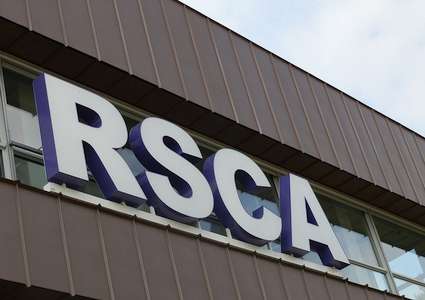Travel
SMEs and digital platforms: the synergy fueling Europe’s travel sector

Competitiveness has become a defining theme for the new European Commission, representing both a cornerstone for economic progress and a wake-up call for policymakers across the continent. Mario Draghi’s timely report emphasizes the urgent need to boost productivity and innovation across the continent. One of Draghi’s key recommendations is to address the productivity gap in SMEs, which are held back by poor tech diffusion.
Poor tech diffusion is a real issue in an economic landscape in which Europe’s economic strength is largely driven by its small and medium-sized enterprises (SMEs), which provide nearly two-thirds of the workforce and account for more than half of all value created in Europe. This is a unique feature of the European economy, while SMEs play a far lesser role in other advanced economies like the US or Japan.
Nowhere is this more apparent than in the travel and hospitality sector, a crucial component of the European economy, contributing 10% of the EU’s GDP. This sector is forecasted to grow from €2.25 trillion in 2023 to a staggering €3 trillion by 2034, further cementing its status as a pillar of Europe’s economic competitiveness.
Synergy Between SMEs and Large Enterprises
Smaller businesses in the travel and hospitality sector are often local, deeply embedded in their communities, and able to adapt quickly to changing consumer demands. They also fill crucial gaps in regions less frequented by large chains, ensuring economic opportunities and cultural preservation even in more remote areas.
However pivotal the SMEs in travel and hospitality are, they face stiff competition from well-funded, tech-savvy, and geographically diversified global hospitality brands. Chain hotels, benefiting from economies of scale, typically show a stronger business sentimentand greater investment appetite. That comes as no surprise, given their ability to invest in marketing and distribution at a scale that smaller players simply can’t match. Yet SMEs have proven remarkably resilient in the face of these challenges, thanks in no small part to partnership with digital platforms like ours.
Digital Platforms: A Game-Changer for SME Competitiveness
Nearly half of all EU tourists are international visitors, and regions such as Croatia, Malta, and Cyprus see up to 90% of their tourism revenue driven by foreign guests. The ability to reach these travelers is critical for independent accommodations, and digital platforms have made it possible for even the most remote SMEs to do so.
In a context of ever increasing global travel, open travel platforms like ours allow even the smallest accommodations to compete on a global scale by connecting them directly with travelers from across the world. For independent hotels, the impact is clear: 80% of Europe’s independent hotels agree that online travel platforms help them boost bookings and sales.
More than just increasing visibility, digital platforms lower customer acquisition costs – one of the top three concerns of European SMEs. The traditional costs of marketing to international travelers—buying ads, negotiating with travel agents, or attending trade fairs—are prohibitively expensive or outside of management’s bandwidth for many SMEs. But with OTAs, small accommodations can access global marketing infrastructures, often for a commission that is only charged when a booking is successfully completed.
The financial benefits are just as significant. A recent study by Statista found that 74% of SMEs who list on digital platforms reported higher profitability. This is particularly impactful for the smallest properties, which typically experience the greatest gains in profitability. For every hotelier who believes platforms have a negative impact, four others attest to the increase in revenue and market exposure these platforms provide.
International hotel chains offer franchisees global scale and tools to enhance competitiveness. These global multinationals increasingly adopt an asset-light model, where they don’t own the hotels but provide proprietary technology, marketing, and distribution to affiliated establishments. Unlike these exclusive networks, platforms like Booking.com remain open to any accommodation that chooses to join or leave, offering flexibility and access to a broader audience without the constraints of brand affiliation–letting hoteliers maintain their entrepreneurial freedom. This open platform approach contrasts with the closed, brand-specific systems of large hotel chains
Balancing Global Reach with Local Value
Digital platforms offer SMEs access to global markets and empower them to stay competitive despite major headwinds. SMEs, on their part, are absolutely pivotal to the local value creation. Studies show that local hotels and restaurants return over 50% of their revenue to their surrounding communities, through local sourcing, employment, and partnerships with nearby businesses. This is compared to just 14% for national chains.
When comparing the European market for travel accommodations as a whole vs. the rooms sold via online platforms, Tourism Economics found that pre-pandemic, only a small fraction of total European accommodation sales went to rural areas (16%). Yet, when we talk about the share of total sales via online travel platforms, the number more than doubles to 38%. This demonstrates how platforms help open up rural areas as destinations for global travelers, enabling them to explore and experience regions beyond the widely-known hotspots.
Conclusion: A Blueprint for European Competitiveness
As Draghi’s report highlights, boosting SME productivity through digital adoption is essential for Europe’s competitive future. Open travel platforms are a critical part of this transformation. Europe’s unique travel and hospitality ecosystem offers a compelling model for economic competitiveness. The synergy between SMEs and large businesses, combined with access to scale offered by digital platforms, has created an environment in which both global chains and small, independent accommodations can flourish. As the sector continues to grow, this balance between scale and local value will continue to be key to sustaining Europe’s position as the world’s premier travel destination.










